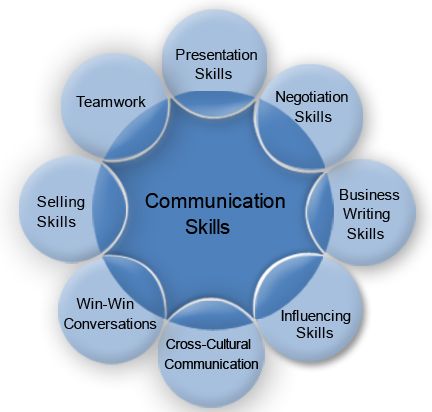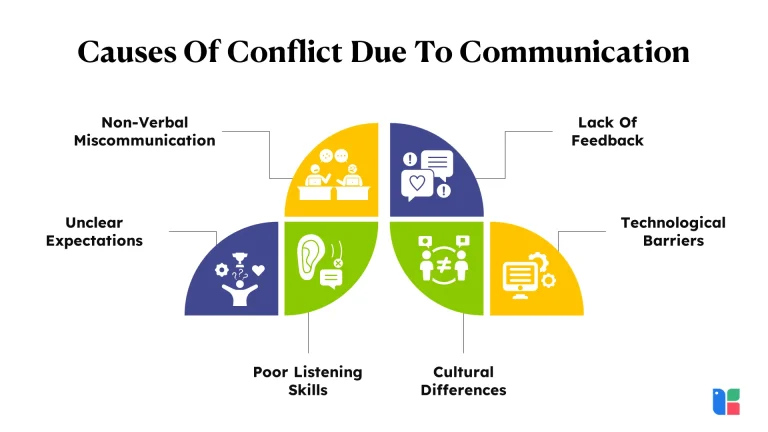Toxic Communication Habits That Will Destroy Your Marriage: Beware!
Marriage thrives on healthy communication. But toxic habits can cause harm.
Many couples fall into negative patterns without realizing it. These habits can slowly break down trust and intimacy. Over time, unresolved issues grow. Small misunderstandings turn into big conflicts. Communication becomes a battleground instead of a bridge. Recognizing these toxic habits is crucial.
It’s the first step towards healing and growth. Every marriage faces challenges. But with awareness, change is possible. Couples can learn to communicate better. They can rebuild their connection and strengthen their bond. Understanding these habits helps prevent damage. It opens doors to healthier interactions. This journey requires effort and patience. But the rewards are worth it. A strong marriage is within reach. Start by identifying and addressing these harmful habits today.
Silent Treatment
Silent treatment creates barriers and fuels resentment in marriage. This toxic habit erodes trust and intimacy. Communication becomes strained, leaving partners feeling isolated and misunderstood.
The silent treatment can be a devastating communication habit in marriages. When you or your partner decides to give the cold shoulder, it creates a wall of silence. This wall can quickly turn into a barrier, blocking any chance of understanding and connection. Instead of solving problems, it often intensifies them, leaving both parties feeling isolated and hurt.Emotional Impact
The emotional impact of the silent treatment is profound. Being ignored by someone you love can lead to feelings of rejection and abandonment. You might start questioning your self-worth, wondering what you did wrong or why your partner won’t speak to you. Over time, this can breed resentment and damage the trust in your relationship. Imagine coming home after a long day, wanting to share your experiences, but being met with silence. It feels like talking to a wall. This lack of response can make you feel invisible, as if your thoughts and feelings don’t matter. It can create a cycle of hurt and misunderstanding, further driving a wedge between you and your partner.Breaking The Cycle
Breaking the cycle of the silent treatment requires conscious effort. Start by recognizing when you’re engaging in this habit. Ask yourself why you’re choosing silence over conversation. Understanding your motivations can help you address the root cause. Communication is key. Reach out to your partner and express how the silent treatment affects you. Use “I” statements to share your feelings without blaming them. For example, say, “I feel hurt when there’s silence between us.” Consider setting ground rules for handling disagreements. Agree to take a short break if needed, but commit to returning to the conversation. This approach shows that you value the relationship and are willing to work through challenges together. Have you ever found yourself using silence as a weapon? Reflect on the long-term consequences it might have on your relationship. By addressing this habit, you can foster a healthier communication style, one that strengthens your marriage rather than tearing it apart.Criticism And Blame
Criticism and blame can quietly erode the foundation of your marriage. These toxic communication habits often start subtly, creeping into conversations until they dominate your interactions. Each critical remark or finger-pointing moment chips away at trust and intimacy. Imagine trying to build a bridge with weak materials; eventually, it collapses. This is what happens to your relationship when criticism and blame become frequent. Identifying these patterns early is crucial to preserving the health of your marriage.
Recognizing Patterns
Do you find yourself frequently pointing out your partner’s flaws? Maybe you feel justified, thinking it’s just constructive feedback. But there’s a thin line between helping and hurting. Pay attention to how often you criticize versus praise. A good exercise is to write down your interactions for a week. Are negative comments outweighing the positive ones?
Blame often follows criticism like a shadow. You might hear yourself saying, “It’s your fault we’re late” or “You never listen.” These statements push your partner away. Reflect on how often you use “you” statements that assign blame. It’s time to shift your focus from pointing fingers to understanding each other.
Constructive Alternatives
Replace criticism with curiosity. Instead of saying, “You never help around the house,” ask, “How can we make chores more manageable together?” This invites collaboration and shows respect. It opens a dialogue that encourages understanding rather than resentment.
When you feel the urge to blame, pause and consider your own role in the situation. Try using “I” statements, like “I feel stressed when the house is messy.” This shifts the focus from accusing to expressing your feelings. It fosters an environment where solutions can be found without hostility.
Imagine how empowering it would feel to transform criticism and blame into constructive conversations. You have the power to change the narrative in your marriage. Are you ready to take that step?
Defensive Responses
Defensive responses can deeply harm marital communication. They create barriers instead of bridges. When one partner feels attacked, they might react defensively. This often leads to misunderstandings. Defensive behavior can escalate conflicts quickly. It prevents couples from understanding each other’s viewpoints. Over time, this habit can erode trust and intimacy.
Understanding Triggers
Identifying triggers is key to reducing defensive responses. Everyone has topics or situations that make them feel vulnerable. Recognizing these can help partners avoid unnecessary conflicts. It’s crucial to be self-aware. Understand what makes you defensive. This knowledge allows partners to navigate discussions more calmly. It also fosters empathy and patience.
Promoting Open Dialogue
Open dialogue is essential for a healthy marriage. Encourage honest conversations without fear of judgment. This sets a foundation for mutual respect. Use active listening to show genuine interest in your partner’s feelings. Avoid interrupting or dismissing their emotions. Create a safe space for sharing thoughts. This approach helps in reducing defensiveness. It promotes understanding and connection.

Credit: www.marriage.com
Stonewalling
Stonewalling is a toxic communication habit that can ruin marriages. Silence, ignoring, or refusal to communicate creates distance and frustration. This barrier prevents understanding and emotional intimacy, leading to resentment and conflict.
Stonewalling is one of the most destructive communication habits in a marriage. It’s not just about ignoring or avoiding your partner. It’s a complete shutdown, where you refuse to engage or respond. Imagine sitting across from your spouse in silence, the weight of unspoken words filling the room. This habit can lead to feelings of loneliness and resentment, slowly eroding the foundation of your relationship. Are you aware of how this behavior might be affecting your marriage?Signs And Symptoms
Stonewalling can often be mistaken for a simple lack of communication. However, it goes deeper than that. You might notice your partner suddenly becomes unavailable during conversations. They may avoid eye contact or change the subject abruptly. Do you feel like you’re talking to a wall sometimes? Another common sign is the physical withdrawal from interactions. Your spouse might leave the room or refuse to engage when discussions get heated. This isn’t just about needing space; it’s about shutting down completely. Consider if you’ve been on the receiving end of this silence or if you’ve contributed to it unknowingly.Restoring Connection
Breaking free from stonewalling requires intentional effort. Start by acknowledging that this behavior is damaging. Open the door to honest conversations with your spouse. Are you willing to be vulnerable to improve your relationship? Set aside time to talk openly, without distractions. Create a safe space where both you and your partner can express feelings without fear of judgment. Have you ever tried scheduling regular check-ins to discuss emotions and concerns? Practice active listening. Show empathy and understanding, even when you disagree. By doing so, you create a pathway to reconnect. Remember, it’s not about winning an argument; it’s about restoring harmony. What steps will you take today to mend the silence in your marriage?Contempt And Disrespect
In marriages, contempt and disrespect often lead to serious issues. These toxic habits can seep into daily interactions. They create a hostile environment at home. Such behaviors include eye-rolling, sarcasm, and mocking. These actions attack a partner’s self-worth. Over time, they damage the bond between spouses. Understanding their impact is crucial. It helps couples address and change these patterns.
Long-term Consequences
Contempt and disrespect erode trust. They create emotional distance in relationships. Couples may start to feel disconnected. This can lead to unresolved conflicts. Communication breaks down, causing further misunderstandings. Over time, resentment builds. Partners may feel unloved and undervalued. This often results in increased arguments. In some cases, it leads to separation. Maintaining a marriage requires mutual respect. Without it, the relationship weakens.
Cultivating Respect
Respect is vital for a healthy marriage. It strengthens the connection between partners. To cultivate respect, practice active listening. Show genuine interest in your partner’s feelings. Avoid negative language and criticism. Encourage each other’s growth and interests. Appreciate the small things they do. Share responsibilities and make decisions together. Celebrate achievements and support during failures. Building respect takes effort. But it fosters a loving and supportive environment.

Credit: www.everydayhealth.com

Credit: www.danburrell.com
Frequently Asked Questions
What Are The 4 Types Of Toxic Communication?
The four types of toxic communication are criticism, contempt, defensiveness, and stonewalling. Criticism attacks character, contempt shows disrespect, defensiveness avoids responsibility, and stonewalling involves emotional withdrawal from interaction. These patterns harm relationships and hinder effective communication.
What Toxic Conversation Styles Sabotage Relationships?
Criticism, contempt, defensiveness, and stonewalling are toxic conversation styles. Criticism attacks character, while contempt shows disrespect. Defensiveness rejects responsibility, and stonewalling involves withdrawal or silence. These styles erode trust and communication, damaging relationships. Focus on empathy, understanding, and constructive dialogue to improve interactions.
What Are The Four Communication Styles That Lead To Divorce?
The four communication styles leading to divorce are criticism, contempt, defensiveness, and stonewalling. Criticism involves attacking character. Contempt shows disrespect. Defensiveness includes playing the victim. Stonewalling means withdrawing from conversation. These behaviors harm relationships and increase divorce risk.
Conclusion
Healthy communication builds strong marriages. Toxic habits can tear couples apart. Listen and speak with kindness. Avoid blame and criticism. Use words that heal, not hurt. Practice patience. Show understanding. Apologize when wrong. Cherish your partner’s feelings. Small changes make big differences.
Choose love every day. Strengthen your bond with respectful conversations. Remember, marriage thrives on positive communication. Keep your relationship healthy with supportive dialogue. Avoid toxic patterns. Prioritize empathy and honesty in every discussion. Build a loving home with careful words.
Let your marriage flourish through thoughtful communication.




